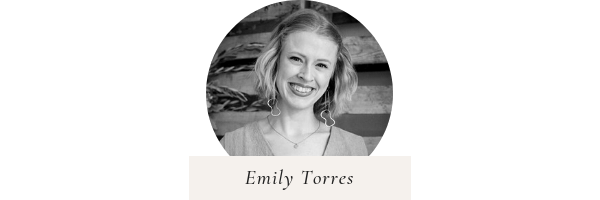
How To Set Mindful Goals For The New Year—And Achieve Them
Let’s Set Healthy Goals This Year.
The goal spiral—we’ve all been there. You start with a shiny new goal, and all goes well for the first week until you end up needing to rest for a day. Then you rest a second day, and then a third, until you find yourself four weeks into a “rest” period without a single thing to show for yourself.
If you’re like me, this is where the self-talk turns nasty. Typical refrains include things like “I never follow through” or “I’ll never get anywhere.” What started out as a healthy, exciting goal, becomes a debilitating weight that keeps me from getting back on track.
This year, my thinking around goal setting is changing—maybe it’s the seasons, maybe it’s the inevitable influence of aging. Here’s a look at how I’m framing new goals—and how I’m planning on actually achieving them this year.
Before Anything Else, Find Your Why
One of the easiest ways to get off track when you’re working towards a goal is to not have clarity around your “why”. This is actually what goal setting should be about—it’s not about reaching a quantitative milestone, it’s about what intention is driving you.
“Use your goals to further your “why”…Set an intention that will drive you instead of deplete you in your journey towards attaining your goal.”
Do you want to write a novel? Ask yourself why. Will your intention be enough motivation to get you through the mental, emotional, and sometimes physical strain of writing tens of thousands of words? Think big picture and set the intention of getting better at writing, and your frame of mind will be much healthier—and more sustainable—in the long run.
Use your goals to further your “why”—whether it’s improving your personal health, serving more clients, or honing a craft you are passionate about. Set an intention that will drive you instead of deplete you in your journey towards attaining your goal.
If this goal is coming from a “why” that you don’t feel will matter in six months or a year, then that intention won’t motivate you in the long run. Shift your goals and your focus towards what does feel resonant in the longer term. Hint: getting more likes on Instagram for the sake of getting more likes isn’t a lasting or reliable intention. Furthering your creative expression, by using tools like Instagram or blogging, is a much more sustainable way to drive you towards a goal.
Be S.M.A.R.T. About Your Goals
One of the most helpful tools I’ve discovered in my search for how to better reach my goals is the concept of SMART goals. It’s a fun and memorable acronym for setting goals that are:
Specific | Get clear on what it is exactly you want and how you’ll get there. Keep track of who, what, when, where, and why so that you can have a structured approach to planning and achieving your goal.
Measurable | Make sure you know at what point you’ve reached your goal. Don’t say you want to run faster, specify that you want to run a mile in under eight minutes. If you’re too vague about what you want, you may never feel like you’ve achieved your goal.
Achievable | Be reasonable and honest with yourself. Climbing Mt. Everest tomorrow is not an achievable goal for most people. Set yourself up for success, and goal-setting will start to feel easier with each planning session.
Relevant | This goes back to your “why”. Make sure the goal you’ve set is relevant to who you are, what you want to be doing, and where you want to go. Have a nice chat with yourself and ask if this is a rewarding and fulfilling use of your time—and let it go if it’s not.
Time-Bound | Another way to keep yourself on track is to set a deadline. Again, if you’re too vague it may feel like you’ve never reached your goal. This also helps you set benchmarks for self-evaluation throughout the process.
If you want to try a vegan diet this year, here’s an example of how to frame it within the SMART criteria. I want to cook one new vegan recipe every Tuesday for my family for the next month because I’d like to use plant-based eating to improve my health.
Four vegan meals in a month is specific, achievable, and it gives you room for error on the weekends if you can’t switch to a 100% vegan diet right away. If you come at goal setting with an all-or-nothing approach, you’ll burn out faster than if you are intentional and reasonable about reaching them.
Plus, note the “because…” statement—that’s your why! Your why doesn’t have to be specific, but it does have to feel natural and motivating.
Hold Yourself Accountable
For as much as I’d love to be self-motivated, I actually work best when I know someone else is counting on me. It’s not the Instagram-perfect #hustle that we see plastered all over the internet, but it’s the way that I personally work, and I’m leaning in to that this year.
“Seek people who are happy to check in and give you the support—and sometimes tough love—that you’ll need. ”
So, if you’re like me, once you set your goals and feel good about them, let your most loved and trusted people know. Avoid people who like to play unsolicited “devil’s advocate”. Instead, seek people who are happy to check in and give you the support—and sometimes tough love—that you’ll need.
Whether you’re more intrinsically- or extrinsically-motivated, it’s always a good idea to write your goals down. Write them in a visible place near your workspace, in your journal, on old receipts you find in your pockets; the frequency and visibility is up to you. Just jot them down on paper so that they show up in the world.
Like A Good Blazer, It’s All About Structure
Admittedly, I fall short on structuring my goals. I’m rather fly-by-the-seat-of-my-pants when it comes to achieving personal goals, and it’s a real area for improvement.
So let’s get through this together: once you write down your goals, set up an outline of the steps you need to take to reach the goal. If you can, set a completion date for each milestone so that you can whether you’re on track to achieve your goal in the time you’ve allotted.
“Take yourself as seriously as you would a close friend or colleague on a similar journey, and you’ll realize your goals with more ease.”
From there, re-evaluate your progress often. Are you a week behind? Decide whether you need to double down on your efforts to catch up—or if you should push back your deadline. It’s also a good idea to check in with yourself to make sure you’re holding true to the original intention of the goal.
Take inventory, too, of what you still need beyond time—do you need more support? More money? More sleep? Take yourself as seriously as you would a close friend or colleague on a similar journey, and you’ll realize your goals with more ease.
And The Rest Is, Well, Rest
I’ve recently had a personal goal that hasn’t gone exactly to plan. (It turns out that the end of the year is not the easiest time to plan a 1,000-word-a-day writing goal.) But even though I’ve fallen off track, I’m learning that this rest is crucial to the project.
Instead of ditching the project altogether, I’m moving towards the original intention of the goal in other ways. I’m writing, creating, and problem solving at work. I’m also writing for a comedy group I’m part of. It’s not the exact project I had in mind two months ago when I set my goal, but it’s all contributing to my “why”: I want to become a better writer.
So if you find yourself needing to take a day off, be thoughtful about it. Instead of staring at the television for 12 hours and calling it self care, try a more active approach. If your goal is fitness-related, skip the weights and go for a casual stroll. If you need a rest from blogging, create in a different way—like photography or painting. Or do some research about your project instead of forcing yourself to make tangible progress. Whatever you do, keep that muscle working!
Plus, the benefits of taking a step back and resting might surprise you—like those aha moments you get in the shower. Give your mind something else to work on, and your subconscious will start solving the obstacles in your path.
Acknowledge What Is Out Of Your Hands
Finally, get real with yourself about what expectations you can set for yourself—and what you can expect from others. There are so many moving parts in our daily lives, and very few are within our control. In fact, the only things we can control are what we do, what we say, and how we react.
“The only things we can control are what we do, what we say, and how we react.”
If your goal includes reliance on others, or reliance on technology or finances, be ready to divert or delay as needed when obstacles come up. Phone screens crack, friends are late, money gets tight—if something goes wrong, brace yourself against self-judgment and remind yourself that you can only control so much.
Jumping back in where you left off after a disruption takes resilience, and it’s not easy. Be gentle and forgiving with yourself—and then get back to it. You can do it.
Emily Torres is the Managing Editor at The Good Trade and the writer behind Ennaree, a blog dedicated to intentional, colorful living. She’s a Los Angeles transplant who was born and raised in Indiana, where she studied Creative Writing and Business at Indiana University. You can usually find her reading or writing, caring for her two rabbits, or practicing at the hot yoga studio.

